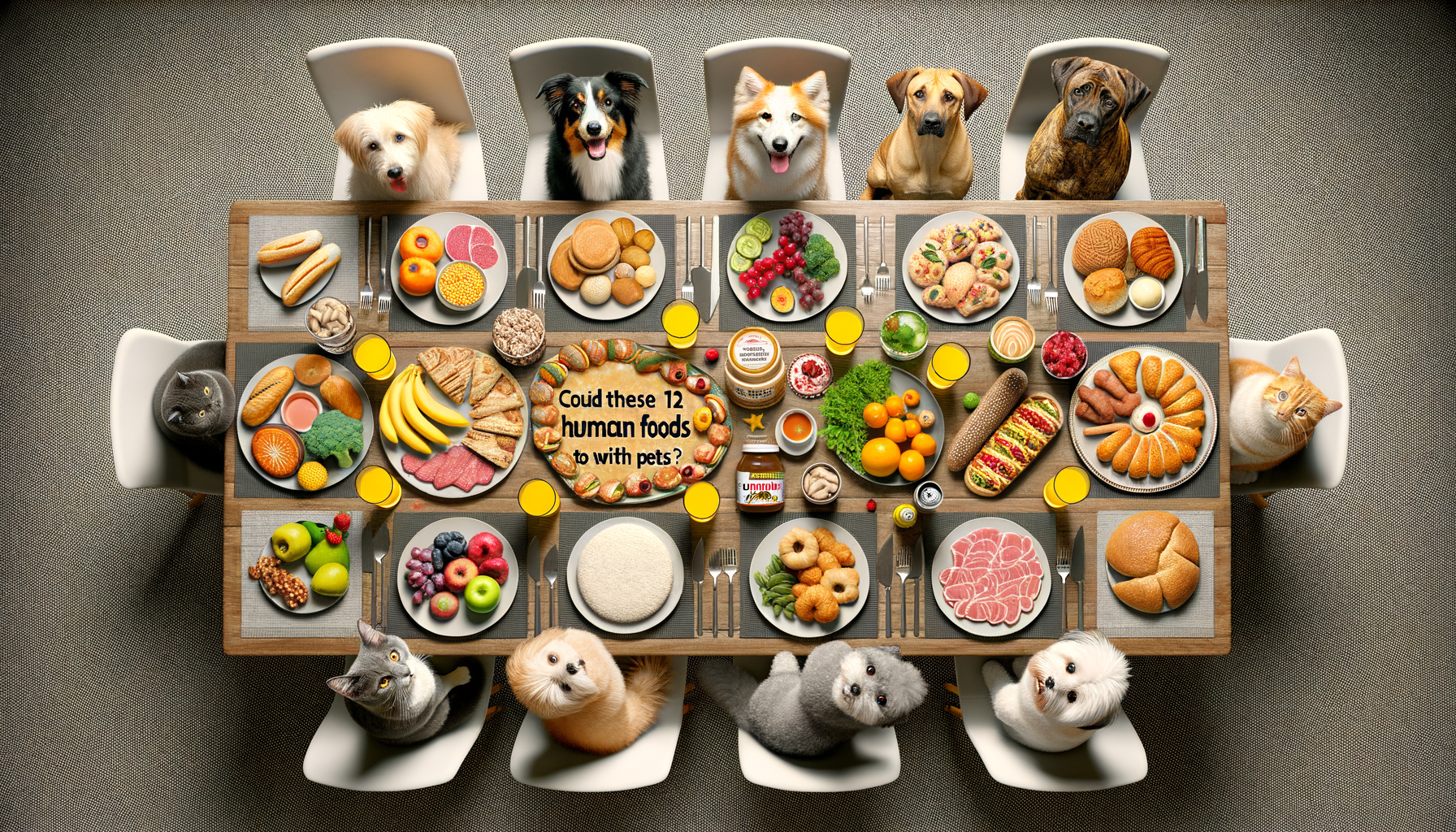Could These 12 Human Foods Be Fine to Share with Pets?
This overview highlights how certain household foods are presented in general pet-related content, using neutral language and without suggesting they are recommended.

Introduction to Human Foods & Pets
Sharing food with our beloved pets is a common practice, yet it’s essential to understand which human foods are safe for them. While it might seem harmless to share a bite of your meal, not all foods are suitable for pets. This article explores the topic of human foods and their suitability for pets, highlighting the importance of being informed about what we feed our furry friends.
Understanding Pet Nutrition
Pet nutrition is a crucial aspect of their overall health and well-being. Unlike humans, pets have specific dietary requirements that need to be met for them to thrive. A balanced diet for pets typically includes proteins, fats, carbohydrates, vitamins, and minerals. Understanding these nutritional needs is vital before introducing any human foods into their diet. It’s important to remember that even though some human foods might appear healthy, they may not provide the necessary nutrients pets require.
- Proteins are essential for growth and repair.
- Fats provide energy and support cell function.
- Carbohydrates offer a quick energy source.
- Vitamins and minerals are necessary for various bodily functions.
Before sharing your meal, consider whether the food aligns with these nutritional needs. Consulting a veterinarian is always a wise step when in doubt.
Potentially Safe Human Foods for Pets
While many human foods are off-limits for pets, some can be shared in moderation. It’s crucial to introduce these foods gradually and observe any adverse reactions. Here are some foods often discussed in pet-related content:
- Plain cooked chicken: A good source of protein.
- Carrots: Low in calories and rich in fiber.
- Apples: Provide vitamins A and C.
- Rice: Easily digestible and can help with digestive issues.
These foods, when prepared appropriately and given in small amounts, may be suitable for pets. However, always ensure that no harmful ingredients, such as onions or garlic, are included.
Foods to Avoid Sharing with Pets
While some foods are safe, others can be harmful or even toxic to pets. It’s essential to be aware of these foods to prevent any health risks. Some common foods to avoid include:
- Chocolate: Contains theobromine, which is toxic to pets.
- Grapes and raisins: Can cause kidney failure.
- Onions and garlic: Harmful to red blood cells.
- Alcohol: Can lead to severe intoxication and health issues.
Keeping these foods out of reach and educating others about their dangers is vital for ensuring pet safety.
Conclusion: Making Informed Choices
In conclusion, while it may be tempting to share our meals with pets, it’s important to consider their unique dietary needs. By understanding which foods are safe and which are not, pet owners can make informed decisions that contribute to their pets‘ health and happiness. Always consult with a veterinarian if you’re unsure about introducing new foods into your pet’s diet.